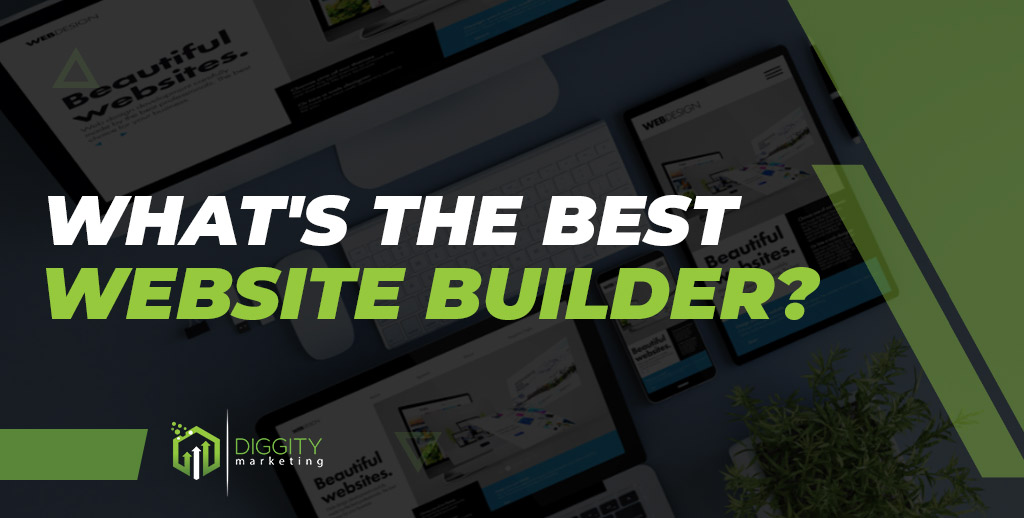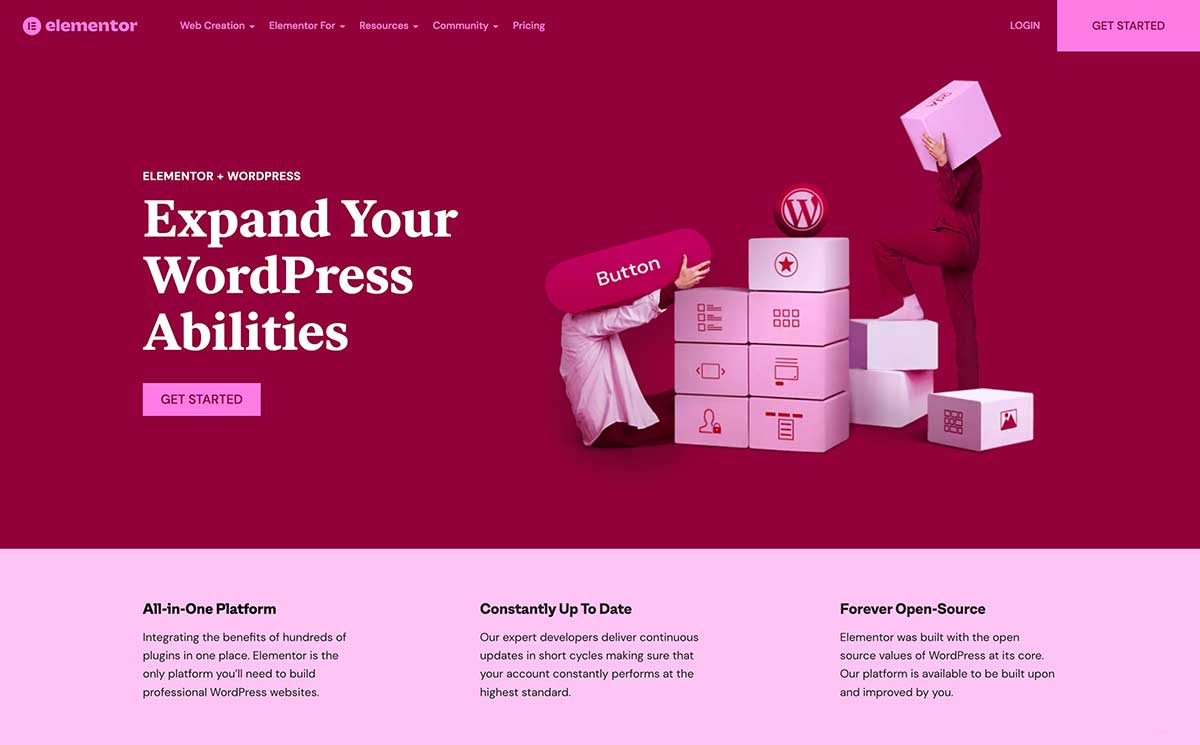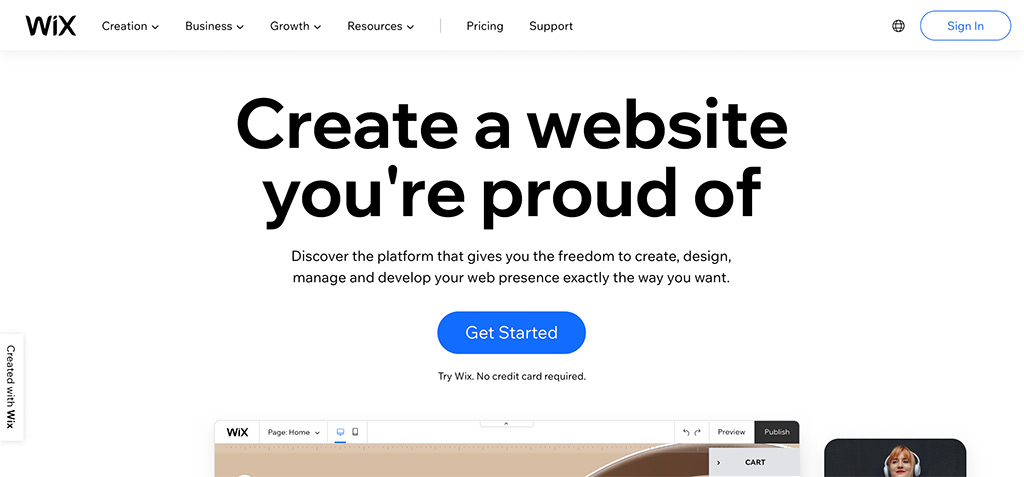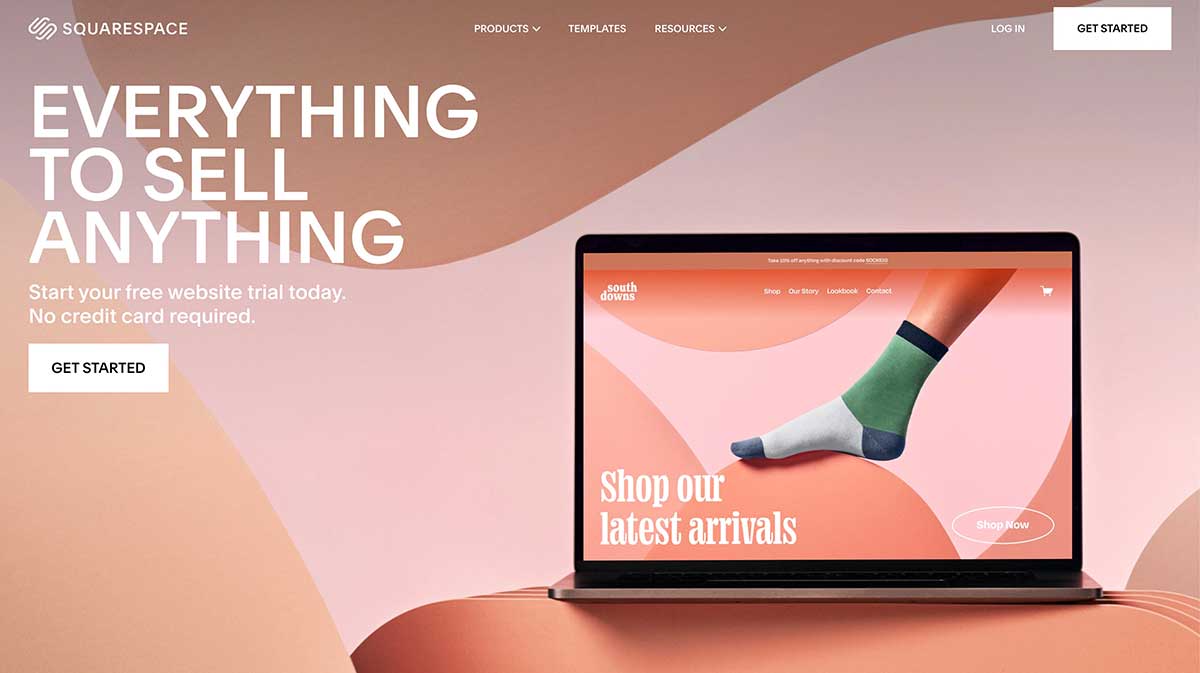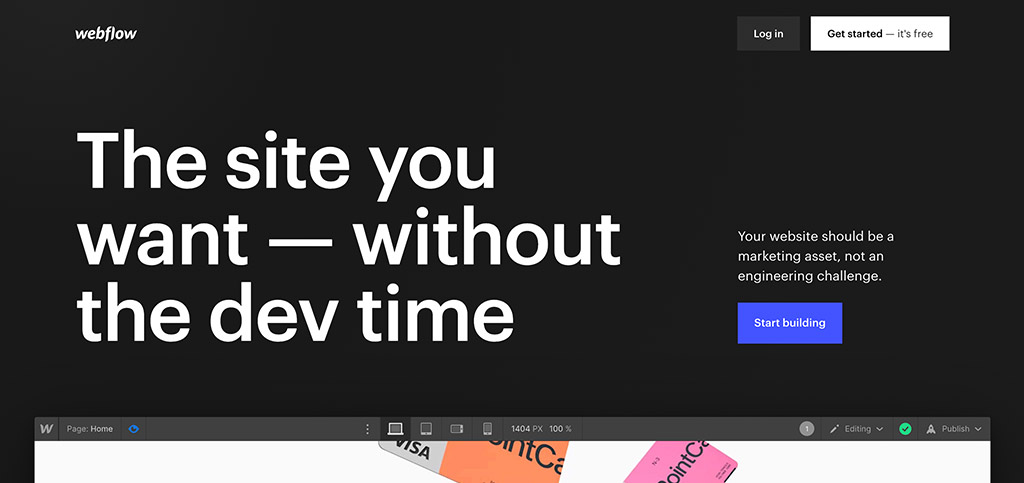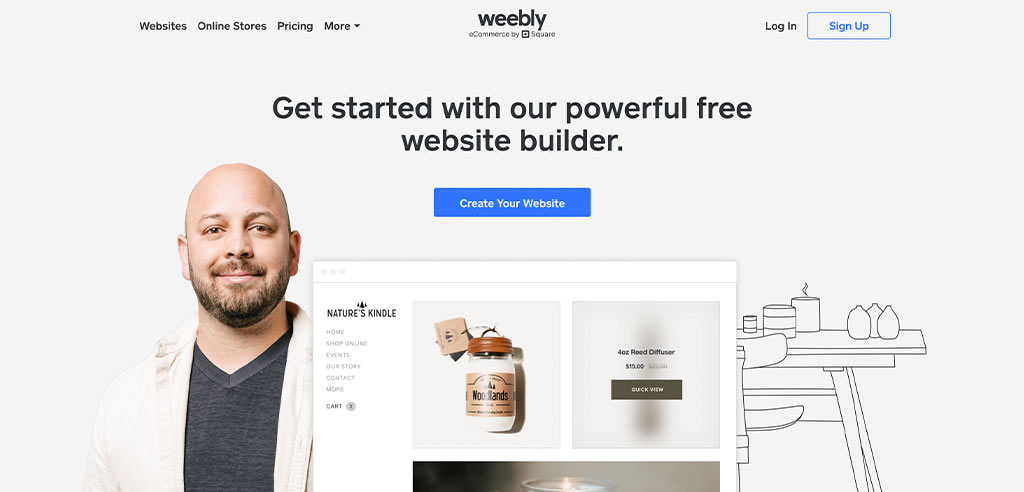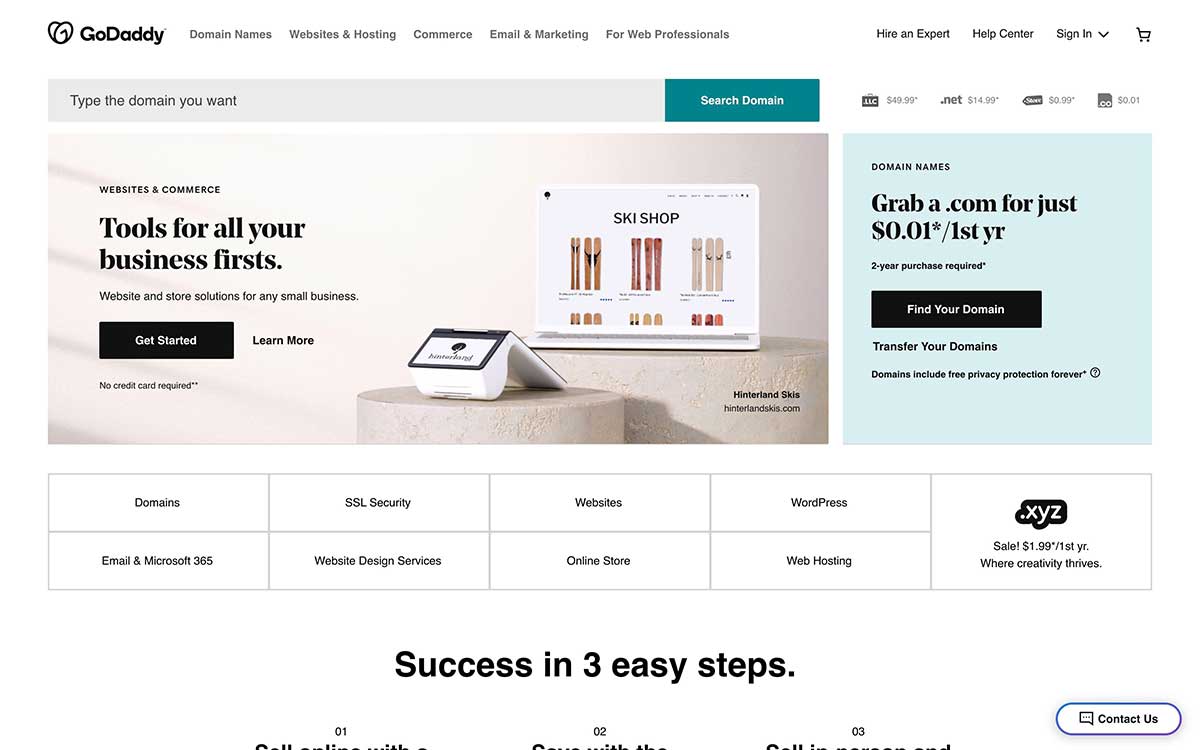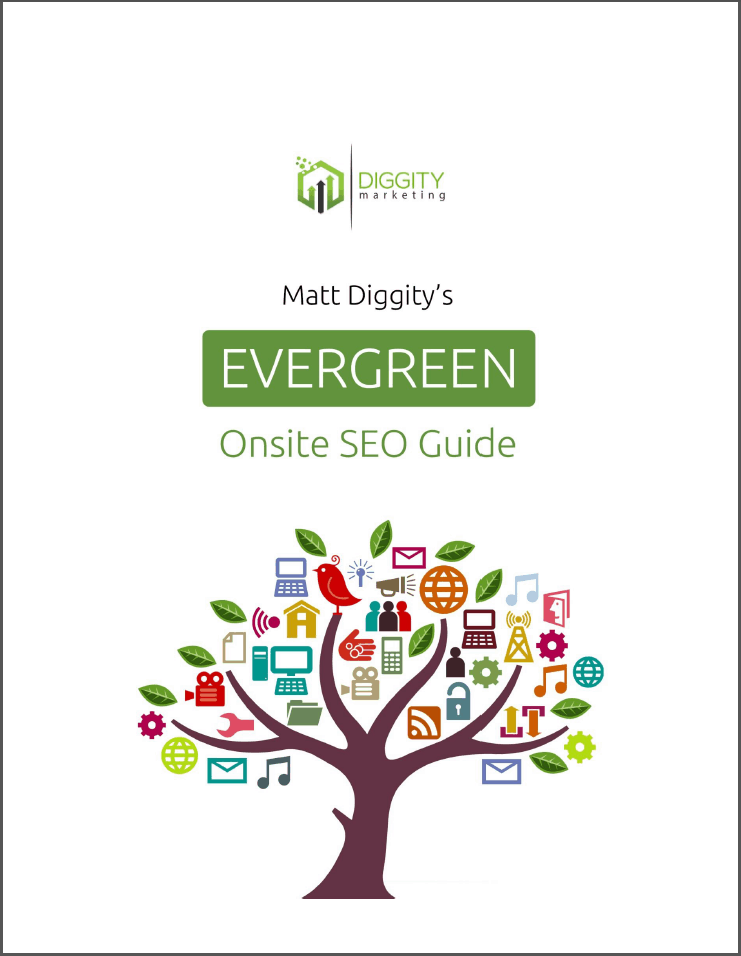As an experienced web developer and digital marketer, I’ve had the opportunity to test and work with numerous website builders over the years. I understand the importance of choosing the right platform for your unique needs, whether you’re a business owner, designer, or freelancer.
In today’s digital age, you don’t need to be a coding expert to create a visually stunning, professional website. Thanks to the vast array of user-friendly, drag-and-drop website builders on the market, building your own site has never been easier.
So if you’re trying to grow a following, build a business online or monetize your website, stay tuned for our list of the best website builders to consider in 2024.
Table Of Contents
Top 7 Best Website Builders
WordPress + Elementor
Content management system with SEO tools

Shopify
eCommerce website builder

WIX
All-in-one solution for professional websites
1. WordPress + Elementor (Editor’s Choice)
WordPress is technically not a website builder on its own (at least not in the strictest sense).
Instead, it’s a content management system (CMS) which is a type of software that stores all content and files on a website.
However, out-of-the-box, WordPress is not very intuitive to use, and it also can require coding!
That’s where the page builder plugin Elementor comes into the picture.
WordPress relies on plugins to extend its native functionality, and tools like Elemenetor can turn WordPress into a drag-and-drop website builder.
At Diggity Marketing, all our websites are built on WordPress due to their versatility and customizability.
Even though it’s not the best platform for beginners to get started with, it’s definitely the one we recommend for scalability and unlocking custom features down the track.
Unlimited customizability
WordPress powers over 40% of the web
Great SEO capabilities
Unlimited design potential
Can get started for a very low cost
Somewhat steep learning curve
May require coding from time to time
Not an all-in-one solution
Pricing Options
Both WordPress and Elementor can be used for free.
However, unlike the site builders mentioned in our list, WordPress doesn’t include hosting or a domain name.
So you’ll need to factor these costs in separately.
There’s also the matter of Elementor’s design capabilities.
Elementor is the #1 WordPress website-building plugin, even with the free version.
But you can also unlock a range of sophisticated design features with the pro subscription, which is only $49/year for one website.
Ease of Use
WordPress has a steep learning curve for beginners and people who haven’t used an open-source CMS before.
However, paired with Elementor, you can unlock an easy drag-and-drop interface that lets you design visually based on what you see on your screen.
Design Flexibility
The beauty of WordPress paired with Elementor is that you can focus on the basic features when you’re getting started and still end up with a visually stunning design.
As your website needs to grow, you can layer in so many additional functions and complex design features without needing to change themes or platforms.
Elementor Pro also lets you unlock:
100+ design widgets
300+ templates
60+ website kits
Theme Builder
eCommerce store builder
Landing page builder
In short, it’s the most versatile website builder on our list!
Templates
Elementor comes with over 300 free and premium designer-made templates you can launch your website with.
We consider it one of the best website builders for anyone looking for a broad range of design styles.
But don’t just take our word for it. Take a look at the library of Elementor’s templates for yourself[1].
Features
Drag-and-drop editor
Responsive designs
Autosave & backup
Revision history
Full website kits
Page templates
Compatible with Envato
Global fonts & colors
Design precision
Motions & interactions
Support
Unlike the other website builders on our list, WordPress does not have dedicated support.
There is, however, a very large global network of experts that offer community support for WordPress users.
Elementor, on the other hand, offers 24/7 support via live chat and a ticket system.
WordPress is the way to go if you are looking for a fully-customizable website builder.
Paired with Elementor, you can still enjoy the drag-and-drop interface you may be used to from other platforms too.
2. Shopify
If you’re looking for a site builder for an online store, Shopify’s the one for you.
Unlike the other options on our list, Shopify is a specialist website builder for small eCommerce stores.
It can also scale as your store grows, though the expense increases significantly!
More on that in a moment.
For most small business owners who want a site builder for a basic online store, Shopify is sure to deliver.
Easy to get started
Low-cost eCommerce
Great checkout experience
Pre-built commerce solutions
Great apps store & integrations
Free trial
Not suitable for large online stores
Limited features and performance
SEO limitations
More expensive than other website builders
Limited blogging functionality
Pricing Options
Shopify pricing starts at $29/month and excludes credit card rates.
The next tier is $79/month, and the highest tier starts at $299/month.
While it is certainly one of the lowest-cost ways to get started with selling online, it’s not the cheapest option out there!
If you’re just looking for a simple way to start selling through your socials, Shopify also has a $5/month starter plan.
However, on the other end of the spectrum, for any advanced functionality, Shopify Plus is the enterprise-grade solution starting at $2000/month.
Ease Of Use
Shopify is very easy to use for setting up an online store.
It is very intuitive to add products and manage your orders and inventory.
However, some people find it challenging to design as Shopify works differently from many website builders on the market.
It doesn’t have as many rich features, like a drag-and-drop editor, as other builders do.
It is purely focused on easy eCommerce solutions, and it definitely delivers on that goal.
Design Flexibility
Shopify’s design capabilities are somewhat limited.
It can be very difficult to modify a theme or template without needing to dig into the theme’s code.
So beginners can often be stuck with the default functionality of the themes.
Templates
In saying this, there are over 100 professional and sleek themes suited to running any kind of online store.
You don’t have to be able to change the templates in order to get the best value you can out of Shopify.
You can easily get started with a plug-and-play theme and launch a website as soon as you have all your product information and images ready to go.
Features
Mobile commerce ready
Branded online store
100 payment gateways
Abandoned checkout recovery in-built
Free SSL certificate
Automatic tax calculations
Multiple languages
Easy dropshipping
Intuitive order fulfillment
Support
Shopify offers 24/7 email and English live chat support on all paid Shopify plans.
3. Wix
Wix has made waves in the world of website building with its beginner-friendly toolset.
In addition, Wix enables total creative freedom through its intuitive and easy-to-use dashboard and drag-and-drop editor.
Unlike many other site builders on the market, Wix doesn’t sacrifice power or customizability.
Instead, it simply continues to add and expand its ever-growing set of features.
As a result, Wix is quite literally the website builder software that does it all.
From building a professional small business website to blogging, eCommerce and internationalization options are available too.
Even a free domain is available with this website builder platform. Discover even more amazing features in our comprehensive Wix review.
You name it, Wix can get you started with it!
Beginner-friendly
All-in-one solution
Professional business websites
Can build a basic online store
Free plan
800+ templates
Free domain name
Auto-generated website to get you started
Some find the visual builder a little cluttered
Can’t switch templates after you publish your site
Great for basic sites but not for custom sites needing more features
Its performance cannot be customized
SEO capabilities are restricted
Pricing Options
Wix has a free plan that you can build a website with. However, many limitations make it unsuitable for business websites.
For instance, the URL of your website will contain “wixsite.com” in it.
Wix also places advertisements at the top and bottom of your website.
You might be okay with these limitations if your website is for personal use or if you’re on a minimal budget.
However, for most people, it’s worth upgrading to a paid account for as little as $15/month.
To unlock business functionality (and for online stores), the pricing tiers start as low as $27/month, which is on par with dedicated eCommerce platforms like BigCommerce and Shopify.
Ease of Use
It’s no surprise Wix’s popularity has blown up in recent years.
For first-time users, or even for people who are building a website for the first time ever, Wix makes the entire process of bringing a website to life very easy.
You can opt for an automatic option that creates the essential pages for your website in a matter of seconds!
You can also easily choose from a broad selection of professionally designed templates and customize them using a drag-and-drop editor.
Either way, you can be up and running with a few clicks.
However, Wix also can feel like information overload for some people as there’s just so much on offer it can be hard to know where to start.
But, once you get familiar with it, you’ll be flying through building a website in no time!
Design Flexibility
Wix offers great flexibility between its vast library of templates and its customizable drag-and-drop interface.
You can also extend the design and functionality of your site with reasonably priced upgrades or third-party apps.
Templates
Wix offers a library of 800+ templates to choose from.
All are professionally designed and suit a variety of styles.
No matter if you are after a simple look or a cutting-edge design, there is something in Wix’s template library for everyone.
It’s worth exploring and finding the perfect template because once your site is live, you can’t switch templates without rebuilding your site all over again.
Features
App market
Free domain name
Social media integrations
SEO tools
Security
Autosave & backups
SSL certificate
Marketing suite
Support
No matter where you are in the Wix website builder, you’ll quickly come across one of the many question mark buttons scattered throughout.
These offer on-the-spot step-by-step guides to help you with every function.
For a more personal touch, Wix also offers a 24/7 callback service and live chat support.
4. Squarespace
Squarespace is a website builder known for delivering sleek and professional website templates.
It has a lot to offer creatives, artists, and small business owners alike.
Unlike other site builders on the market, Squarespace really shines when it comes to the variety of professionally designed templates you can choose from.
As a result, it’s the ideal platform for anyone who wants a visually stunning website, even if they don’t have design skills.
Affordable
Versatile
Best range of templates
Great support
Visually-stunning websites
Drag-and-drop editor
Not well-suited to large online stores
Steeper learning curve for absolute beginners
Minimal control over website performance
Pricing Options
Squarespace’s pricing is very affordable. The entry-level tier starts as low as $16/month, and the highest level sits at $49/month.
No matter where you are on this scale, it’s an affordable solution all around.
Especially when you also consider that you won’t need to pay for extras like web hosting or security (as they are already included in every plan).
Ease of Use
Squarespace is relatively easy to use, but some beginners have found there is a bit of a learning curve.
However, if you’ve had a go at building websites before, Squarespace is intuitive and uses a custom WYSIWYG drag-and-drop editor.
Design Flexibility
Squarespace’s design flexibility is among the best in the market.
It’s earned its place as the website builder of choice for many artists, photographers, and creatives for a reason.
Paired with powerful design features like automatically responsive designs, image scaling, text wrapping, and galleries, it’s no surprise that creatives worldwide have fallen in love with this visually stunning platform.
Templates
Hands down, Squarespace offers the best range of professional (and absolutely gorgeous) templates we’ve found.
Features
Library of pre-built layouts
Customizable templates
WYSIWYG and a drag-and-drop editor
All in one solution (hosting & security included)
Automatically responsive designs
Built-in blogging tools
Built-in tools for online stores (on highest pricing tiers)
Support
Something that stood out to us is the depth of Squarespace’s knowledge hub.
With a wide range of written and video instructions on making the best use of their platform, you’ll likely find an answer to most of your questions.
Squarespace also offers 24/7 email support, live chat, and access to a community forum.
All up, Squarespace is one of the best website builders on the market right now and is ideal for creatives or small business owners who want to build a visually stunning website with ease.
5. Webflow
Webflow is a responsive website builder software that has attracted designers and creatives far and wide.
It has gained popularity for its no-code functionality paired with uncompromising design excellence.
Webflow sits somewhere between traditional website design software (such as open-source platforms like WordPress) and modern website builders that rely on a drag-and-drop interface.
Like open-source platforms, Webflow carries a level of customization and power that drag-and-drop builders simply cannot offer.
For this reason, Webflow tends to be used by web designers who want a fully customizable platform but don’t want to bother with the headaches that come with hard-coding solutions.
Great levels of design customizations
Excellent range of templates
Stunning designs
Automatically responsive
In-built site speed and performance features
Free plans available
Steep learning curve
Not suited to beginners
Limited support options
Not suited for a large online store
Not suited for large content sites
Limited built-in apps & integrations
Pricing Options
You can get started designing for free.
For personal sites, you can also publish your website on a webflow.io domain as part of the free plan.
However, if you want complete control over your branding, pricing starts at $12/month and goes as high as $235/month.
Ease of Use
Once you sign up, Webflow has an excellent onboarding sequence introducing you to its features.
However, for first-time users, we’d recommend going through Webflow’s tutorial before you start building.
Webflow’s editor is quite unlike most website builders as it resembles design software like Adobe Photoshop rather than the familiar drag-and-drop interface you might be used to with Squarespace or Wix.
While web designers may feel like kids in a lolly store, Webflow is quite tricky for almost everyone else to pick up.
Design Flexibility
Webflow is an excellent option for anyone seeking design flexibility without having to code.
You can push past the design limitations of most drag-and-drop website builders and make your website exactly what you envision.
Known for its clean, responsive, and fully customizable design options, Webflow is very versatile for designers and business owners alike.
Templates
Webflow features over 100 templates, including 40 free ones.
You can also filter templates by industry, eCommerce, or whether they are free or premium.
All of Webflow’s templates are responsive and automatically adapt to fit different screen sizes.
They’re also very well put together and can hold their ground against the market leader, Squarespace, as far as design quality and visual appeal are concerned.
Features
Unfortunately, the Webflow website builder software generally falls down compared with other builders as far as features go. And might we add, web hosting services in general.
Many people can find Webflow’s feature range quite frustrating compared with the likes of Wix or Squarespace, with have an abundance of features. So it’s not exactly one of the top website builders.
Some key features Webflow does give you include:
Backups & security
Advanced SEO control
Parallax scrolling and interactions
Multiple payment options
Facebook and Instagram integrations
Support
Webflow has a decent help center known as Webflow University.
It’s well presented and relatively easy to search.
Paired with Webflow’s community forum, you have a decent place to start looking if you get stuck with anything.
But when it comes to contacting Webflow directly, that’s where things get a little murky.
In most cases, the only way you can get in touch directly is via email, and it can take 24-48 hours to receive a reply.
All up, while Webflow is a great website builder to design with, it will be a challenge for beginners to use due to the lack of personal and immediate support available.
But if you’re a designer looking for a customizable no-code platform, give Webflow a go!
6. Weebly
Weebly is a very simple free website builder that packs a powerful punch when it comes to the range of features available. It is also one of the most popular website builders.
Moreover, we’re pleasantly surprised by its range of blogging and eCommerce features, which most other platforms reserve for premium tiers.
In a nutshell, Weebly is great for beginners and people who are on a tight budget.
The builder itself is somewhat limited compared with other options on our list, but it’s decent enough to help you get started. You even get a free domain.
As long as you’re not expecting a flashy design or custom features, you’ll still be able to build a decent website with ease.
Generous free features
Easy to use
Suited to beginners
Blogging features
Low-cost online store
eCommerce & retail powered by Square
It can feel a little outdated
Limited features
Limited customizability
Pricing Options
As mentioned, Weebly sports a generous free tier.
However, the paid tiers are also relatively affordable, starting at $6/month to $29 /month.
Since Square acquired Weebly, the platform has focused on providing essential functionality for running an online store.
As such, we’re pretty impressed with the range of eCommerce features available for free and on the ultra-low-cost tiers.
Without a shadow of a doubt, Weebly is one of the most affordable website builders for anyone to get started with a no-frills online store.
That said, you can also build a site for your small business or blog too.
Ease of Use
Weebly is one of the easier website builders to get started with.
While it has fewer features than industry giants like Wix, that can also be a blessing in disguise.
Many people find Wix overwhelming and experience information overload when trying to make sense of all the extra features.
Weebly is a simple, no-frills experience by comparison.
Design Flexibility
Much like its editor, Weebly’s design options are also on the simpler side. They lack the sleek, visual appeal of Squarespace’s designs and the bold, cutting-edge look Wix is known for.
In saying this, Weebly’s designs are still well thought out and stylish in their own way.
No matter how we look at it, though, the prevailing sense of limitation is there at every turn, no matter what you’re trying to create on Weebly.
Templates
Weebly offers over 50 themes that you can change at any time, even after publishing your site.
It also provides many structured templates that guide you on how to create your website best.
However, as noted, if you’re seeking any degree of creative control, Weebly is unable to give you that.
Features
Weebly sports an impressive app store and has a wider range of in-built features than Wix.
It also comes with some great blogging and eCommerce tools.
Here are some noteworthy features available on all plans (including the free plan).
Free SSL certificate
3rd party embed codes enabled
Shopping cart
Unlimited items
Inventory management
Tax calculator
Coupons & gift cards
SEO & lead capture tools
Instagram feed
Support
All plans get access to Weebly’s community forum and support via chat and email.
However, the Professional and Performance plans also get access to phone support with priority support reserved for the highest pricing tier only.
There’s a decent knowledge base with guides on how to best use Weebly.
Also, you can check our detailed Weebly review.
Despite its design limitations, everyone’s gotta start somewhere, and Weebly is not a bad place for beginners or anyone on a limited budget!
7. Godaddy
GoDaddy is a well-known company offering many products to website owners.
It is the most popular hosting company worldwide and provides some of the cheapest domains (when you snag a good deal for your first year).
It’s no surprise that GoDaddy also offers a website builder to its customers.
The GoDaddy website builder is very user-friendly and is hands down the fastest way for a beginner to get their website live.
Just enter your details into its design assistant, and GoDaddy will give you a tailored website ready for you to customize.
Fast website builder
Great for beginners
Pair with hosting & domain services
Great for small businesses
Reasonable prices
Not suited to large websites
Basic functionality
Limited in-built features
Not suited for an online store
Pricing Options
Like Weebly, GoDaddy lets you get started for free.
You can also experience the premium features for free for seven days.
If you choose not to upgrade after the free trial, you won’t lose any of the work you’ve done on your site either.
If you want to upgrade to a paid plan, the lowest starts at only $6.99/month, and the highest goes up to $44.99/month on renewal and when paid monthly.
Our general observations of GoDaddy over the years have been that they offer some of the best deals up front.
In fact, they’ll often lose money on the initial products you buy.
However, when it comes to renewals, GoDaddy is almost always among the most expensive options and above-average without fail.
Where we’re going with this is to be careful that you’re not overpaying for features you can find elsewhere for a lower cost.
Ease of Use
GoDaddy is straightforward to use. That’s why you can have a website up and running within minutes of signing up. And that’s no exaggeration.
Design Flexibility
Like Weebly, GoDaddy is also fairly light on its design flexibility.
It’s a low-cost, no-frills solution best suited to people who want an all-in-one option for all their business website needs.
In fact, between the two, Weebly offers so many more features even on its free plan compared with GoDaddy.
For instance, GoDaddy’s Basic (paid) plan doesn’t include SEO tools.
Well, actually, it does if we consider self-managed SEO options.
But if you’re looking for a built-in website optimizer, you’ll be fresh out of luck.
You’ll need a bit more tech-savviness to get the most out of GoDaddy.
If you ask us, that defeats the purpose of using a simple website builder in the first place!
Templates
The reason GoDaddy is so fast to build with is because it uses artificial design intelligence (ADI) technology to help create a personalized template for you to edit.
If you’re looking for a large library of pre-built templates, GoDaddy may leave you wanting.
Features
GoDaddy has a range of versatile features. However, they don’t have much depth or power to them.
While you can get started with some bare essentials, for most businesses, GoDaddy’s features simply won’t be enough to grow an online business in the long run.
However, if you’re looking for an all-in-one solution for all your website needs, GoDaddy is definitely up there.
From web hosting for small businesses to domains, emails, and more. GoDaddy is a great one-stop shop for beginners who want a simple place to manage all their website needs.
Support
All GoDaddy plans come with 24/7 support via phone or chat. GoDaddy also has fairly decent ratings for its support services from existing customers.
You don’t become the world’s largest web hosting company without looking after your customers, that’s for sure!
If you’re a small business owner looking for a one-stop-shop for all your website needs and you’re happy to build a low-cost, no-frills website to get you by, give GoDaddy a go.
How We Chose The Best Website Builder
At Diggity Marketing, we pride ourselves on taking a unique, data-driven approach to uncover the best software on the market for anyone building a website.
That’s why our review of the best website builders available today stands out from the rest.
All our recommendations are backed by hours of research and testing.
That’s how we deliver accurate and reliable data to help you make the best decision as to which platform is best suited to your needs.
We took dozens of the best website builders out for a spin and tested them on:
Ease of use
Design flexibility
Quality and availability of templates
Value for money
In-built features
Support
Whether you’re an affiliate marketer, a small business owner, an artist, or a designer, there’s bound to be a website builder that’s perfect for your needs.
Frequently Asked Questions
How To Choose The Best Website Builder
With the incredible drag-and-drop editor most website builders offer today, it is now easier than ever for beginners to build their own websites without a huge expense.
However, choosing the best website builder needs proper consideration.
The builder you choose can either help your business expand to its full potential, now and in the future.
Or it can be the very thing that limits your ability to grow your website in the direction you would like.
That’s why it’s important that you have a clear plan of how you would like to grow your website in the future before you settle on a website builder today.
Think carefully about what type of website you want to create and what functionality it will need.
Will text, images, or video be the main focus?
It’s also important to consider who will be creating the website.
If you are thinking of doing it yourself, how easy it is to learn the platform will also need to be another consideration.
Once you have an idea of your budget and feature requirements, you can start looking through options and weighing up the pros and cons of each for your needs.
Thankfully, most website builders come with free trials, so you can try before you buy.
You always have the option of switching to another platform if you change your mind after the trial.
However, if you build your entire website on one platform and realize it has limitations that you didn’t expect, it can be an expensive and time-consuming endeavor to move to another platform down the track.
So it’s worth taking the time now to make sure you’re settling on the right platform for your needs.
Website Builders Vs Web Design Software
At a glance, website builders and web design software may seem the same.
After all, they both exist to achieve the same end goal — to create a beautiful, professional website with all the features your business needs.
However, it’s the way in which they get you to the final goal that separates them from each other.
For instance, a website builder is usually an online program that focuses a great deal on simplicity and making the DIY web design experience a breeze.
You’ll often get access to a drag-and-drop editor, allowing you to change the design as you’re looking at it and without having to touch a single line of code.
On the other hand, web design software is typically designed for people with more technical skills who desire more customizability and direct access to the code base.
This software seldom comes with a drag-and-drop editor or a suite of visual tools, as it’s designed for professional developers who do not need visual builders.
There’s also usually a price difference.
Most website builders are priced fairly competitively and suited to solopreneurs, startups, and small businesses.
Many even have a free tier available.
Web design software that’s made for experienced programmers often does not have a free pricing tier and can cost a fair bit more.
At the end of the day, whether a drag-and-drop builder or web design software is the right choice for you will depend on your level of experience and what sort of functionality your website will need.
In most cases, a simple website builder is sufficient.
When paired with the right apps or plugins, you can also extend the baseline functionality to customize more areas of your website.
However, if you need custom options, that’s where you might decide a web design software that allows you to extend the functionality of your website however you like is a better option for your needs.
Free Website Builders Vs. Paid Website Builders: Is There A Difference?
Yes, there is a big difference between free website builders and paid website builders. You probably have wondered if it’s worth paying for a website builder when there is a range of free options available on the market.
As with anything in life, you get what you pay for.
However, you’ll quickly face limitations with the functionality you can access.
In most cases, it will show in your final website design and can affect how professional your website appears to potential customers.
For example, a free site builder may come with limitations such as the following:
You can’t customize your domain. This means instead of www.yourbusiness.com your website will be something like www.yourbusiness.mywebsitebuilder.com
The branding of your website building platform may be added to every page on your website.
You may not be able to customize the design, so it is responsive across a range of different devices, like mobile phones and tablet screens.
You may not be able to access advanced design features that can give you more control and precision over your layouts and designs.
You may not be able to access beautiful and professional pre-designed themes.
You may have performance issues such as very slow loading times.
Your site builder may place advertisements on your website that you cannot switch off or control.
There are also some features that can affect the essential functions of your website which are often not included in the free tier of many website builders.
For instance, if you need eCommerce tools, you may find a very limited range available for free.
In essence, if you are after a professional website for your business, a free platform can lead to many issues affecting your brand’s reputation and credibility.
A paid platform is often the better solution for businesses.
That doesn’t mean you have to empty your wallet every month just to be able to afford all the features you need.
Many website builders are surprisingly affordable, even for startups or cash-strapped solopreneurs!
How Much Do Good Website Builders Cost?
When it comes to the costs of good website builders, there’s no straightforward answer.
You might be satisfied with simple pre-built templates and are happy to put up with ads from a free platform.
Whereas a business owner who wants to protect their brand’s reputation and image may be irritated by these features.
Thankfully, there are awesome website builders that can deliver professional-looking websites for as little as $6 a month.
On average, we’ve found most business owners prefer to pay between $15 to $30 a month when getting started in order to unlock essential functionality their business needs.
Ultimately, it’s up to you.
Costs can easily escalate once you factor in hosting, security, add-ons for online shop features, marketing features or other functionality.
It’s a good idea to thoroughly research the platforms you think will be best for your needs before you make your choice.
Be sure to check out their pricing and what features are included.
Also, consider how each website builder will scale with your needs as your business grows.
It can often be more cost-effective to pay a little extra per month from the start to avoid the costs of transitioning to another platform down the track.
How Hard Is It To Build A Website Using A Builder?
It is no longer that hard to build a website using a builder.
There was a time when building a website meant that you needed to know how to code and design layouts online.
Gone are those days!
It’s no longer a daunting process to bring a website to life.
In fact, even if you haven’t got any coding or design skills, it’s possible for you to launch a simple website in less than a day.
Of course, it depends on what functionality your website will need and how much you’re willing to spend on your website builder.
Putting these aside for a moment, there’s nothing else stopping you from getting started with a professionally built template on a no-code website builder.
With the intuitive and versatile experience, most drag-and-drop builders offer, it’s as simple as clicking and dragging elements into place on your screen.
If you have a bigger budget, you could still invest in a sleek website design with a professional designer’s touch.
Most of the platforms we mentioned above are versatile enough to deliver the most professional websites that you can maintain on your own.
Just pick a platform in your budget that offers templates you like and an in-build drag-and-drop editor.
Doesn’t get easier than that!
WordPress Vs Website Builders: Which Is Better?
You’ve likely heard the sentiment that WordPress is the most popular platform for building a website. And it’s true.
WordPress single-handedly powers over 40% of the web [2]. It is the most popular content management system used.
However, it’s important to note that WordPress isn’t a website builder in the strictest sense.
Sure, it can be paired with plugins that enable the same functionality as website builders. But, at its core, WordPress is a content management system.
A content management system (or CMS for short) is the name given to any platform that organizes and manages your web content and helps you build a website.
All website builders contain a CMS – they have to in order to store all the files and content associated with your website.
But, WordPress gives you much more control and customizability over how your website is built.
That’s why it also has a steeper learning curve than platforms like Wix, Weebly, or Squarespace.
In the long run, however, you might find that WordPress opens up all the doors for custom functionality your business website will need.
Paired with a drag-and-drop editor or page builder like Elementor, you can also unlock the ease of use other website builders offer.
Website Builder Vs Website Hosting: Are They the Same?
Website builders are different from web hosting providers.
Think of web hosting as the service that allows you to store all the files associated with your website.
Every time someone loads your website on their computer, their machine sends signals to the servers you lease through your web hosting provider.
That’s how they can access your website files so they can see your site.
A website builder, on the other hand, simply helps you design the information on your website and put it into a nice visual layout.
Many website builders include hosting as part of the monthly fee they charge you.
However, platforms like WordPress require that you purchase hosting separately.
Which Is The Best Website Builder You Recommend For Beginners?
The best website builder for beginners who are building their own website is Wix.
Wix has invested a lot in making its website builder extremely easy to use.
As a beginner, you will also access dedicated support from the experts at Wix if you get stuck with anything.
You also don’t need to worry about setting up hosting or buying a domain name — Wix helps you set up everything you need, one simple step at a time.
As such, it’s ideally suited to people who do not intend on using their website to run a large business and for websites that will likely stay small.
Which Website Builder Do We Recommend in 2024?
It goes without saying that the best website builder will depend on your needs.
It’s a difficult choice to name one platform as the best as the state of innovation with website building technology has improved immensely in recent years.
However, we recommend Wix for anyone just getting started and WordPress paired with Elementor for businesses that need flexible, scalable design features.
Between these two platforms, you can create any type of website, including eCommerce, a blog, a small business website, and more.
You can also tap into dedicated communities of developers and designers who can help you out with any tasks you cannot complete yourself.
All in all, you can get your website up and running in no time with either of these platforms.
Our #1 Recommendation: Wordpress + Elementor
Ease of use
Pricing
Features
Support
